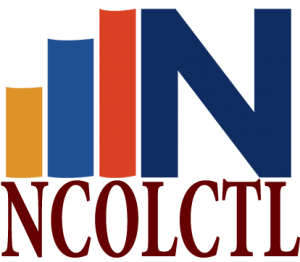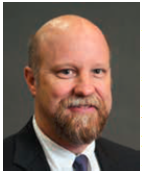 This conference aims to pursue a new pathway for advocating innovative approaches in research and practices, maximizing professional exchanges and collaboration among LCTL educators, and leveraging resources and strengths in the less commonly taught languages community. We cordially invite researchers, educators, practitioners, program developers, and administrators in the LCTL community organizations to attend the conference.
This conference aims to pursue a new pathway for advocating innovative approaches in research and practices, maximizing professional exchanges and collaboration among LCTL educators, and leveraging resources and strengths in the less commonly taught languages community. We cordially invite researchers, educators, practitioners, program developers, and administrators in the LCTL community organizations to attend the conference.
Time & Location
April 21, 2016 – April 24, 2016
Holiday Inn & Suites Atlanta Airport North
Click to download a copy of the program
Speakers
Mohamed Abdel-Kader
LCTLs and Global Competency in the 21st Century
ABSTRACT: The 21st century brings with it a multitude of opportunities for people around the world to engage, but they must have the global competency and linguistic ability to understand the challenges ahead and solve the world’s most pressing issues.
Christine M. Campbel
Christine M. Campbell (Ph.D. Foreign Language Education, Purdue University, 1986) has worked in Language Education for over 30 years managing language and assessment programs and teaching world languages—Spanish, French, and ESL. She began her career at the Defense Language Institute Foreign Language Center as Spanish faculty before becoming Test Project Director, Dean, Assistant Provost, and Associate Provost.
Her publications have focused on language assessment, language anxiety, and technology. Author and co-author of The Modern Language Journal (MLJ) column “In Other Professional Journals” (1987-2008), she is a member of the Editorial Boards of Applied Language Learning (ALL), Dialog on Language Instruction (DLI), and Innovating Language Education: An NMC Horizon Project Strategic Brief, which was commissioned by the Language Flagship Technology Innovation Center (LFTIC) at the University of Hawai‘i at Mānoa. She has reviewed for the MLJ, Hispania, and Language and Linguistics Compass.
She has provided service to the profession as President, American Association of the Teachers of Spanish and Portuguese and as Director of Test Development, National Spanish Examinations, an assessment taken by 70,000 high school students annually under her administration. She was a member, Board of Governors, UC Consortium for Language Learning and Teaching, and is a member of Phi Beta Kappa. She won the Civilian of the Year Award for the Ninth Region from the Association of the United States Army in 1996. She was named Distinguished Alumna by Purdue University in 1994.
Enhancing Language Learning through Collaboration
ABSTRACT:The plenary session will address a number of key collaborative efforts across academe, government, and the private sector to promote research and development in the areas of pedagogy and technology such as those by the New Media Consortium, an organization dedicated to exploring the use of new media for teaching, learning, and creative inquiry composed of hardware manufacturers, software developers, and publishers who work with academe to promote the use of the latest multimedia-capable products. Select examples of joint initiatives across the three sectors will be examined: The work between the Massachusetts Institute of Technology, Lincoln Labs and the Defense Language Institute Foreign Language Center to produce state-of-the art online language learning tools; government-sponsored summits that bring together academicians, contractors, and government personnel to define and examine the latest challenges in language learning like those organized by the Defense Language National Security and Education Office; Department of Defense (DoD) university-affiliated research centers like the Center for the Advanced Study of Language; joint committees such as the American Society for Testing and Materials Committee F43 on Language Services and Products that has over 100 members from government, academe, and business; the government-funded Flagship Program at universities; work done by the Office of the Director of National Intelligence and academicians towards creating a broad forum that includes the intelligence community, DoD, and academe for sharing ideas on advancing LCTL solutions, plans to create a central repository for LCTL materials accessible to all, and more. Also reviewed in the plenary will be a sampling of government-produced online language learning tools available to the general public for use in today’s learning space, where autonomous learners access content anytime, anywhere.
Richard Brecht
Leadership and the Language Profession
ABSTRACT: Support for language education is all around us: the American Academy of Arts & Sciences national Commission on Language Education; states taking action on the Seal of Biliteracy and “credit for competence”; businesses demanding “global talent”; Hill members again openly concerned about language. Yet, enrollments seem not to be responding.
Commissions can recommend, foundations and government may fund, industry will support, but who is to lead? Who else but the language profession itself? We must strengthen our organizations and they must mobilize this new energy towards one goal: to make language education in this country available to all. And our organizations must do it together, in a manner that is cohesive, comprehensive and collaborative.
Now is the time for the profession to position itself to respond to the recommendations of the AAAS commission and to take the lead in proactive implementation. First, the mindset has to be one of responsibility and accountability: we are not waiting for others to lead. Second, each language organization should look to build or strengthen its structure and functions, to make sure that its constituencies (teachers and students) are receiving the full range of services they deserve and that their members are motivated to act, optimistically. Third, organizations should conceive of themselves as part of a whole, the language profession, not “commonly” vs. “less commonly,” or K-12 vs. higher education, or any such like. Fourth, the language education sector should reach out to government, industry, NGO and heritage communities in a common effort: the “Language Enterprise.” Finally, and perhaps most importantly, organizations should nurture new generations of leaders, as any successful effort to make language an integral part of every child’s education in the US will take years of focused and unrelenting effort.
Pete Swanson
Building Your Core: Effective Practices for Language Learners and Educators ABSTRACT: What’s at the core of effective language learning? Educators using research-informed practices develop language proficiency plus literacy and critical thinking skills. Learners demonstrating real applications of language become a program’s strongest advocacy. Unwrap what’s behind teacher efficacy and empowerment; experience and identify core practices for effective learning. Framed by research on teacher recruitment and retention and informed by program realities, tap ACTFL’s numerous resources and ongoing networks supporting language educators.
Bryan Anderson
Bryan Anderson is Director of Art & Media Production at the National Foreign Language Center at the University of Maryland, serving in this capacity since 2004. Mr. Anderson manages all audio and video production for the NFLC, as well as overseeing user interface design and web technologies. His extensive background as an audio engineer, video producer, and successful Internet entrepreneur give him a unique set of skills that inform much of the work of the NFLC. In addition to his technical skills, Mr. Anderson is a classically trained musician and spent years as a performer, arranger, orchestrator, and producer. His musical talents have been heard in places as diverse as Los Angeles, Miami, London, and Nashville, and he has provided musical services to Hal Leonard Publishing, Roland Corporation, and the Disney Corporation. Bryan holds a B.A. in Music Theory from Azusa Pacific University, with additional studies in computer science.
The National Foreign Language Center (NFLC) E-Learning Portal
ABSTRACT: Over the past decade, the National Foreign Language Center has produced over 13,200 learning objects, video learning objects, and assessment objects in 94 languages and dialects. It has also produced full-length courses and job aids, on topics as varied as translation, ILR-level passage rating, and Arabic variants identification. Because of this rich and varied content, the NFLC decided to create a web-based portal that houses the majority of this material. The purpose of this presentation is to illustrate the nature and variety of these materials, as well as the benefits for individual, groups, and learning managers. These materials that were previously unavailable to the public are now available through the NFLC E-LEARNING PORTAL.





